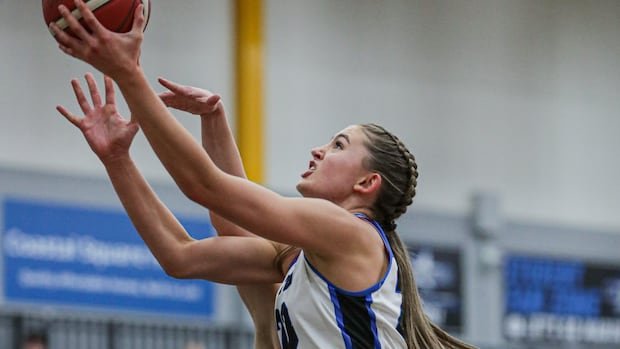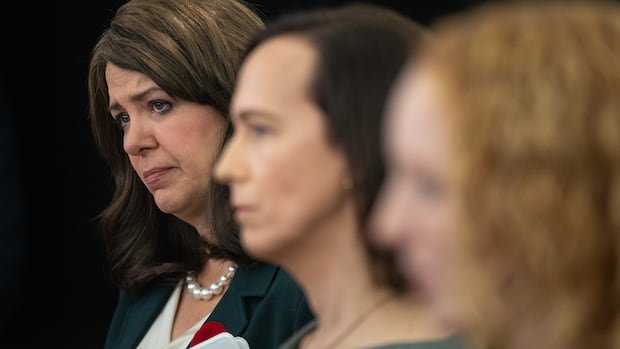A transgender college basketball player in Canada says she was physically targeted by opponents during a game after their coach said she shouldn’t be allowed to play against women.
Harriette Mackenzie, a 21-year-old forward for Vancouver Island University, spoke with The Canadian Press and on social media in hopes that sharing what happened will help.
“I’m proud of my story. And I want to make something very clear — queer, trans and nonbinary people belong in sport,” she said in a social media video. “And there is zero space in this league for hate, violence and bigotry.”
The Mariners (4-0) won a pair of home games last week against Columbia Bible College. After the first game, Mackenzie said, CBC coach Taylor Claggett yelled at a VIU staff member that Mackenzie — who led both teams with 19 points and 16 rebounds — shouldn’t be allowed to play against women.
During the second game a day later, Mackenzie said she was physically targeted by her opponents and she later shared a video from the game where, away from the ball, a CBC player tosses her to the floor. Mackenzie finished with 14 points and four rebounds as her team won again.
WATCH | Athletic orgs react to Alberta’s ban on trans women ban in female sports:
One of Alberta’s newly introduced bills is intended to protect the integrity of female athletic competitions, according to the Alberta government. The province says the bill would establish biological female-only divisions, and sex registration at birth would determine competitive eligibility. The government says it would also support the creation of mixed-gender divisions so all athletes can compete.
CBC, an evangelical Mennonite college, issued a statement late Thursday saying it feels Mackenzie’s video “does not accurately represent all the events that took place.”
“Taylor Claggett was speaking out for the safety of her players like any good coach would do,” the statement said. “We stand in support of Taylor Claggett, and all our coaches, in expressing their legitimate concerns for the safety of our student-athletes.”
Transgender rights has been a major topic in the U.S. presidential race between Democrat Kamala Harris and Republican Donald Trump, who responded to controversy surrounding a San Jose State University volleyball player by threatening to ban transgender athletes from women’s sports.
The league noted that it follows Canadian Collegiate Athletic Association policy on transgender athlete participation, which includes parameters on testosterone levels and hormone suppressants and replacements. Mackenzie said she has a much lower testosterone level than her teammates and competitors.
“In terms of recovery, muscle mass, I’m at a competitive disadvantage,” said Mackenzie, who said that she started transitioning when she was in kindergarten or first grade.
Critics always attribute her success to being transgender, said Mackenzie, whose parents both played college basketball.
“I believe all trans people should be included in sport. But it’s especially infuriating to me because I’m playing — and being forced to play — at a major biological disadvantage,” she said. “I never went through a male puberty. I only went through a female puberty. And I don’t have ovaries, I don’t have testicles, so I have zero way of making any testosterone.”
Mackenzie told CP what she experienced last weekend is nothing new and that she’s been outed and attacked by players, coaches and fans across her basketball career. Last season, Mackenzie played at a college in Calgary and said the lack of support after a teammate’s transphobic comments prompted her to return home and eventually back to VIU, where she helped her team win a national championship in 2023.
“The difference just in terms of fun and team chemistry and stuff has been really nice,” she said. “This is how I remember basketball feeling and how I remember enjoying it.”















